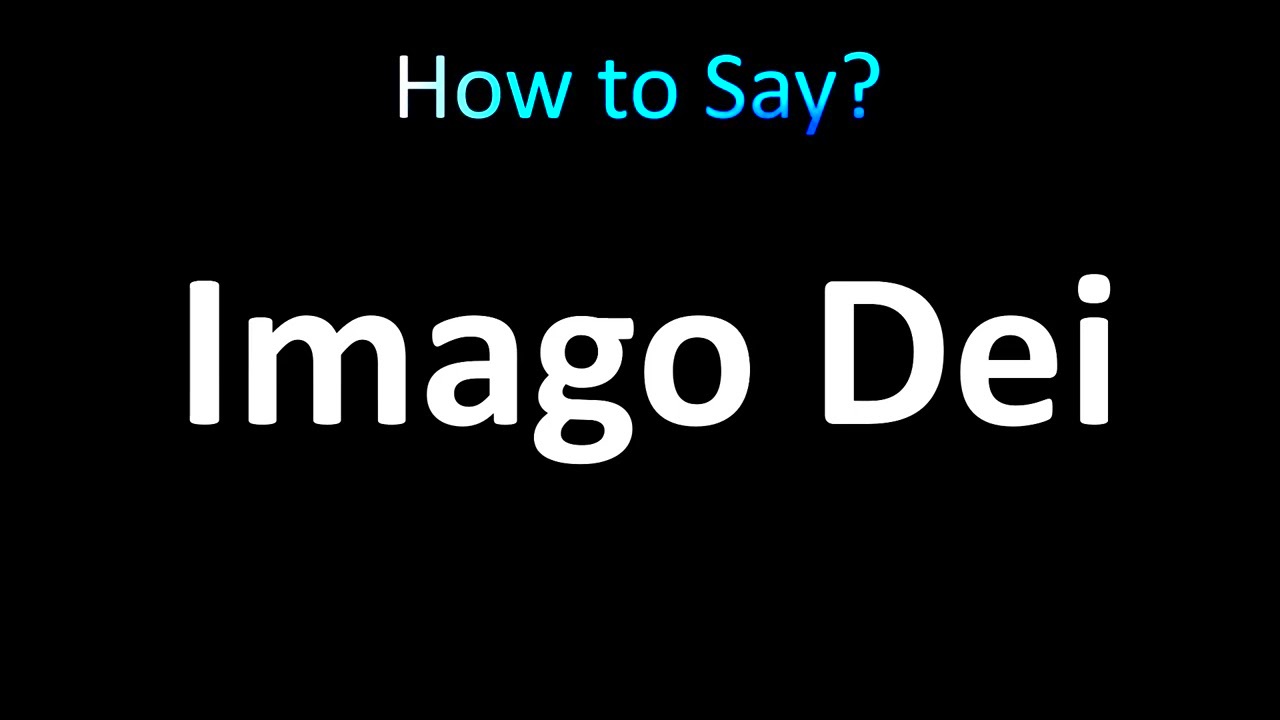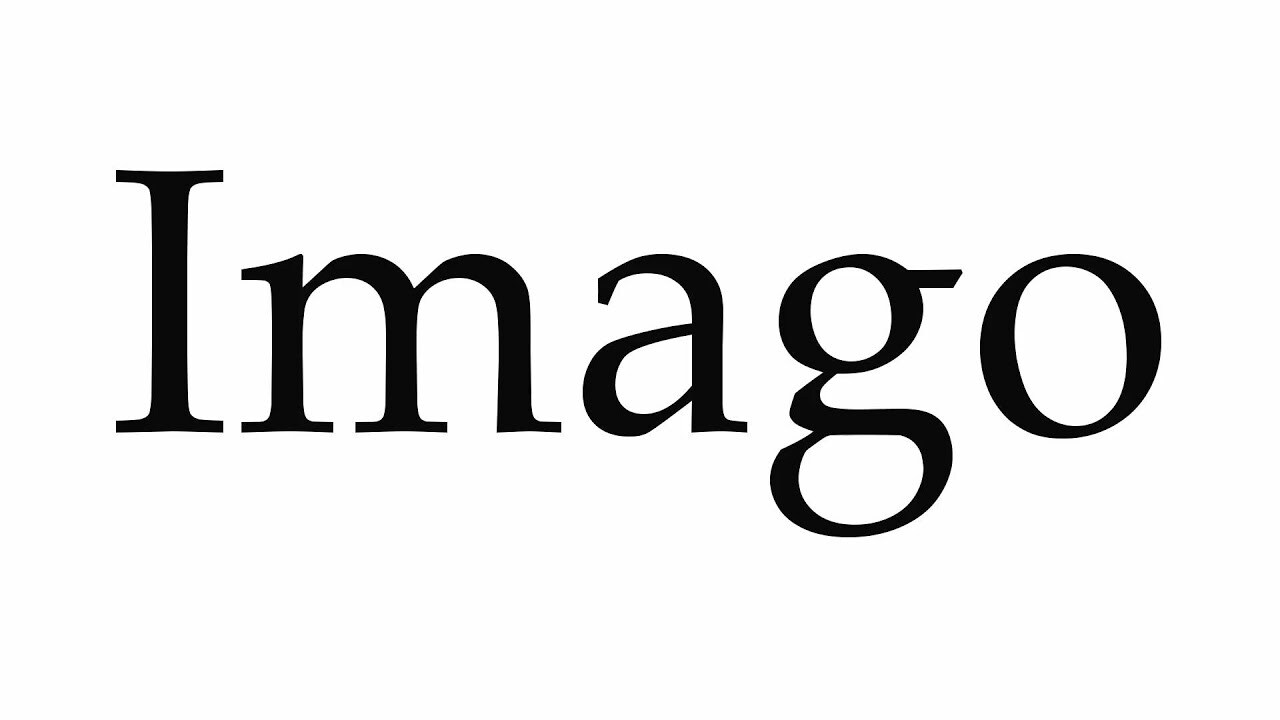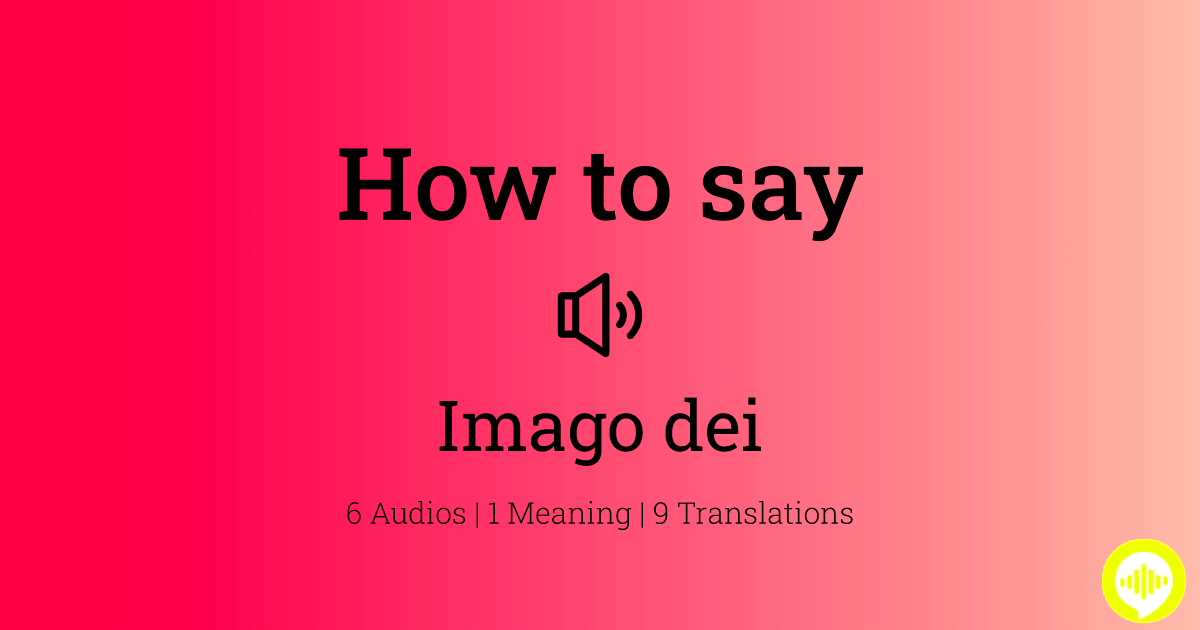Imago Dei is a Latin term that translates to "Image of God." It's a profound concept in theology, especially within Christian thought, signifying that human beings are created in the image and likeness of God. This idea is central to understanding human dignity and our role in the world. It's often discussed in religious contexts, but it also influences discussions about ethics, human rights, and the nature of humanity.
Understanding this concept requires a deep dive into both religious texts and philosophical interpretations. While the phrase itself originates from the Bible, it has been a topic of reflection for centuries, raising questions about what it means to be human and how we relate to the divine. In this article, we'll explore how to pronounce this important term properly, so you can engage in these discussions with confidence and respect.
Understanding the Pronunciation of Imago Dei

Pronouncing "Imago Dei" correctly can be tricky if you're not familiar with Latin pronunciation rules. While the phrase may look complex at first glance, breaking it down makes it easier to understand how to say it properly. In many cases, people mispronounce it simply because they’re not aware of the nuances of Latin sounds.
The pronunciation of Imago Dei is influenced by its Latin roots. When spoken in English, it is often simplified, but it’s important to maintain some of the original phonetic elements. Here's a simple guide to help you say it correctly:
- Imago is pronounced as "ih-MAH-go," with the emphasis on the second syllable.
- Dei is pronounced as "DAY-ee," with emphasis on the first syllable.
By understanding how the words should sound in their original Latin form, you ensure that you’re pronouncing the phrase in a way that aligns with both its cultural and theological significance.
Also Read This: Supercharge Your Email Marketing Campaigns with Imago Images
Breaking Down the Phonetic Elements of Imago Dei

To master the pronunciation of "Imago Dei," it's essential to break it down into its individual phonetic components. Let's look at each part of the phrase and its respective sounds:
Imago
The word "Imago" comes from the Latin root meaning "image." It’s pronounced as "ih-MAH-go," where:
- "ih" sounds like the "i" in "bit."
- "MAH" is pronounced with a broad "ah" sound, like the "a" in "father."
- "go" is a soft "o," as in "go."
Dei
"Dei" comes from the Latin word for God, and it's pronounced "DAY-ee." Here's the breakdown:
- "DAY" sounds like the word "day."
- "ee" is pronounced like the "ee" in "see."
Putting it all together, it should sound like "ih-MAH-go DAY-ee", with the emphasis on "MAH" and "DAY." Understanding these phonetic elements will help you pronounce "Imago Dei" correctly every time.
Also Read This: A Comprehensive Look at What 123RF Offers Creators
Common Mispronunciations and How to Avoid Them

When it comes to the term "Imago Dei," many people mistakenly mispronounce it due to unfamiliarity with Latin pronunciation rules. These mispronunciations can cause confusion, especially in formal discussions about theology or philosophy. Let's explore some of the most common mistakes people make and how to avoid them.
Mispronunciation 1: "Imago Dee"
One common mistake is saying "Imago Dee," where the "Dei" part is pronounced like the letter "D" followed by the long "e" sound, like "see." This skips the correct Latin diphthong sound.
How to avoid it: Remember that "Dei" should sound like "DAY-ee," with both syllables pronounced distinctly. Avoid blending the sounds into one long "ee" sound.
Mispronunciation 2: "Imago Day"
Another frequent error is pronouncing the entire phrase as "Imago Day," where both parts are said in an anglicized way. While this might sound familiar to English speakers, it’s not true to the Latin pronunciation.
How to avoid it: Keep the original phonetics of the word "Imago" with an emphasis on the second syllable ("ih-MAH-go") and "Dei" pronounced as "DAY-ee." This will help preserve the term’s theological weight.
Mispronunciation 3: "Imago Die"
Some people mistakenly pronounce "Dei" as "Die," thinking it looks like the English word for death. This mispronunciation alters the meaning and flow of the term.
How to avoid it: Focus on "Dei" being two distinct syllables: "DAY-ee." The "e" is not silent, and it should be a short, clear sound rather than merging into the "i" sound.
By practicing the correct pronunciation, you can ensure you’re saying "Imago Dei" as it was intended, both in terms of language and respect for its meaning.
Also Read This: How to Obtain Credit for Your Downloads from 123RF.com
Contextual Use of Imago Dei in Different Settings
Understanding how "Imago Dei" is used in various contexts can deepen your appreciation for the term and its pronunciation. While its roots are theological, the phrase also appears in cultural, philosophical, and ethical discussions, making it a versatile concept.
Imago Dei in Theology
In Christian theology, "Imago Dei" refers to the belief that humans are created in the image of God, which is foundational to understanding human dignity and purpose. This concept is particularly important when discussing topics like human rights, ethics, and the nature of the soul. The phrase is often used in religious texts, sermons, and discussions about humanity's relationship with God.
Imago Dei in Philosophy
Philosophically, "Imago Dei" has been examined in relation to human consciousness, identity, and morality. Thinkers such as Augustine and Aquinas have explored what it means for humans to reflect God's image, and how this affects our ability to reason, make moral decisions, and live meaningful lives. In these settings, pronunciation may be less important than the underlying idea, but clarity in speech remains key to conveying the concept accurately.
Imago Dei in Art and Culture
In the world of art, literature, and culture, "Imago Dei" has been used as a symbol of human creativity and the divine spark within individuals. Many works of art explore the idea that humanity mirrors divine beauty, and understanding the term's meaning can help you engage with such works more profoundly. Artists may not always use the term explicitly, but the idea behind "Imago Dei" often shapes their creations.
In all these contexts, knowing how to pronounce "Imago Dei" correctly ensures that you respect its significance, whether you're discussing it in a religious, philosophical, or cultural setting.
Also Read This: What Is Previews.123RF.com? How It Differs from the Main Website
Importance of Pronouncing Imago Dei Correctly
Why is it so important to pronounce "Imago Dei" correctly? Pronunciation not only helps you communicate the term’s meaning clearly, but it also shows respect for its origin and cultural significance. Here’s why getting it right matters:
Respect for the Term’s Origins
"Imago Dei" originates from Latin, and Latin is a language with specific rules that are important for preserving the integrity of the term. By pronouncing it correctly, you honor both the historical and theological context of the phrase.
Conveying the Right Meaning
Pronouncing "Imago Dei" as it is meant to be spoken helps to convey its true meaning. This is especially important in discussions about religion, philosophy, and ethics, where the concept plays a vital role in understanding human nature and our connection to the divine.
Enhancing Your Credibility in Discussions
If you're discussing theology, ethics, or human rights, pronouncing terms like "Imago Dei" correctly can enhance your credibility. It shows that you've taken the time to understand the term and its implications, and that you're not just parroting words without meaning. This is particularly important in academic, religious, and professional circles where respect for language and tradition is valued.
Creating a Respectful Dialogue
Finally, correct pronunciation fosters mutual respect. By pronouncing "Imago Dei" the right way, you're not just getting the sounds right—you’re also showing that you value the cultural and theological weight behind the term. This helps create more respectful and meaningful conversations, whether you're speaking with others in religious or academic settings, or simply sharing your thoughts with friends.
Ultimately, when you master the pronunciation of "Imago Dei," you’re doing more than just speaking a word correctly—you’re engaging with a deep and timeless concept in a way that’s thoughtful and respectful.
Also Read This: Posting 123RF Images on Instagram: Copyright and Usage Policies
How the Pronunciation of Imago Dei Reflects Its Cultural Significance
The pronunciation of "Imago Dei" is not just about getting the sounds right—it also reflects the cultural and historical weight of the term. Understanding how to say it properly can deepen your appreciation for its importance in religious and philosophical contexts. By pronouncing it correctly, you show respect for its origins and its ongoing influence in various areas of thought and culture.
The Latin Roots and Their Influence
"Imago Dei" comes from Latin, a language that shaped much of Western thought, especially in religious, legal, and academic circles. Latin is known for its precision, and the way a word is pronounced often carries a specific meaning or tone. By pronouncing "Imago Dei" according to its Latin roots, you are acknowledging this historical context and reinforcing the term’s importance in both ancient and modern discussions about humanity and divinity.
Significance in Christian Theology
In Christian theology, "Imago Dei" signifies that humans are created in God's image. This concept holds deep meaning, as it influences ideas about human dignity, rights, and morality. Correct pronunciation ensures that you're conveying the theological depth of the term. When spoken accurately, "Imago Dei" maintains its connection to the divine, emphasizing the reverence and respect humans are called to embody as beings created in God’s image.
Respect for Tradition and Heritage
Correct pronunciation also demonstrates respect for the traditions and heritage from which the term comes. Whether you are speaking to scholars, theologians, or everyday individuals, saying "Imago Dei" properly ensures that you’re connecting with a centuries-old tradition that has shaped countless ideas and discussions about what it means to be human.
In essence, the way you pronounce "Imago Dei" carries cultural significance. It's not just about saying the words right—it's about recognizing and honoring the powerful concepts and traditions that have been built around them.
Also Read This: How to Seamlessly Integrate Imago Images into Your Content Marketing Strategy
Frequently Asked Questions about Imago Dei Pronunciation
When it comes to pronouncing "Imago Dei," people often have similar questions. Here, we’ve answered some of the most common queries to help clear up any confusion.
1. How do you pronounce "Imago Dei" correctly?
The correct pronunciation of "Imago Dei" is ih-MAH-go DAY-ee. Emphasize the second syllable of "Imago" and the first syllable of "Dei." It’s important to pronounce each syllable clearly, particularly the "Dei" part, which is often mispronounced as "Die" or "Dee."
2. Why is "Imago Dei" pronounced differently than it looks?
Latin, the language from which "Imago Dei" originates, has specific rules for pronunciation. The "e" in "Dei" is not silent and is pronounced as a distinct "ee" sound. Additionally, Latin pronunciation often differs from English, so it’s natural for a word like "Imago Dei" to sound different than it might seem at first glance.
3. Is there a "right" way to pronounce "Imago Dei"?
Yes, the pronunciation "ih-MAH-go DAY-ee" is the most widely accepted and historically accurate way to say "Imago Dei." While slight variations may occur due to regional accents or preferences, sticking to this pronunciation ensures you’re respecting the Latin origin and the term’s theological significance.
4. Can I pronounce "Imago Dei" as "Imago Day"?
While it's understandable that English speakers might pronounce it as "Imago Day," this is an anglicized version of the phrase. The original Latin pronunciation, "ih-MAH-go DAY-ee," is preferred for accuracy and respect for its meaning. Saying it the correct way will also help you engage more meaningfully in conversations about theology and culture.
5. Why does the pronunciation of "Imago Dei" matter?
Pronouncing "Imago Dei" correctly shows respect for the term’s cultural and theological significance. This phrase carries deep meaning in religious, philosophical, and cultural discussions, so getting it right is important. It also helps foster clearer communication and ensures that you convey the term’s full depth and importance.
Conclusion: Mastering the Pronunciation of Imago Dei
Mastering the pronunciation of "Imago Dei" may seem like a small detail, but it holds great significance in terms of clarity, respect, and cultural understanding. Whether you're discussing theology, philosophy, or human rights, pronouncing this term correctly ensures that you honor its deep historical and spiritual roots.
By breaking down the pronunciation—"ih-MAH-go DAY-ee"—you’ll be able to say it with confidence and accuracy. This not only helps you communicate more effectively but also allows you to engage more meaningfully in discussions surrounding this profound concept. After all, the way we say things often shapes how we understand them, and mastering "Imago Dei" is a step towards deepening our understanding of what it means to be human and to be made in the image of God.
Remember, correct pronunciation is about more than just saying the right words—it's about connecting with the rich cultural and theological history that "Imago Dei" represents. So, take a moment to practice, and you'll soon be able to pronounce it with confidence, whether you're sharing it in a religious study, a philosophical discussion, or a casual conversation.

 admin
admin








